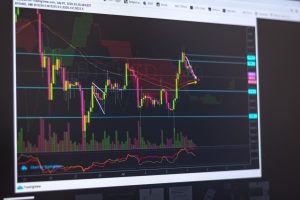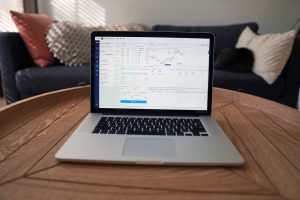CFDs are financial contracts between two parties to buy or sell an asset at a certain price on a specific date. For example, you pay for the right to buy and sell a company’s share at a particular price within a given period.
CFDs are contracts that trade the difference in the price of an asset. Many CFDs are traded on margin, meaning that you borrow money to buy the asset. CFDs can apply to any market, from a stock and currency market to a derivatives market.
How do CFDs work?
CFDs traders can trade CFDs without having to buy the underlying asset. For instance, you can buy a CFD on a stock or index and sell the CFD on that same stock or index after a specified period or when the CFD reaches a certain price. These contracts allow traders to trade on the cost of an asset without actually owning the asset.
Strategies of Trading CFDs
CFDs trading is growing in popularity, and more and more brokers are offering their clients. As a result, CFDs trading is becoming the go-to strategy for the financial markets.
It allows investors to improve their returns using many strategies, including day trading, swing trading, trading options, and futures and options contracts. In addition, many CFDs brokers offer educational material on CFDs trading.
Advantages of CFDs
The following are the benefits of trading CFDs:
Leverage
With CFD, you get better results with less initial capital investment because they have a high margin requirement compared to other trade types.
Transparency
With a valid contract for difference, you get to know your exact profit and loss in advance based on fluctuations in the asset price. Such transparency is not always the case with other trading instruments such as binary options and stocks, which brokers can manipulate.
No funding fees for deposits and withdrawals
Unlike other trading instruments, there are no extra charges or commissions for depositing or withdrawing funds from a CFD broker account, making this instrument very cost-efficient to use.
High liquidity
Many people trade CFDs which makes it easy to open and close positions quickly.
Exchange fee
Unlike with other trading methods, if you trade CFDs through an exchange, you will not have to pay any fees for the transaction itself. Instead, the only cost you will pay is the spread between your bid and offer prices, which reflects the market’s overall sentiment towards the asset at that moment in time.
No technical knowledge or coding skills
Trading CFDs requires no in-depth understanding of technical analysis. It only requires a simple trading interface and consistent market data.
Unlimited trade size
In comparison to other trading instruments, where limits usually apply to your deposits and withdrawals, CFDs allow you to open a position with an unlimited amount of money. This position gives traders more flexibility when building their portfolios.
Disadvantages of CFDs
Leverage can be dangerous
CFD trading instruments allow traders to use a large amount of leverage to trade with high volumes and low margin requirements. When trading with leverage, you can calculate your losses by using the same factor as your gains.
Risk of getting liquidated
If a trader’s margin balance reaches a predetermined level or the market moves too much against them, their position will be force-liquidated. In this case, the trader can lose more than they invested.
Credit risk
When traders open a CFD position, they need to be aware that their counterparty is a financial institution and not the exchange itself. It means that an individual has no recourse when dealing with a lousy counterparty. All contracts between buyer and seller fall outside the regulatory perimeter.
No protection or Recourse
When buying or selling a CFD, traders do not own the underlying asset but only benefit from the price movement of that asset. It means that they have no legal rights to it and typically no protective regulations.
Final Thoughts
Investors trading CFDs enjoy many advantages. Firstly, You can trade CFDs on margin, which means you can invest large amounts of money.
Secondly, when trading CFDs, you benefit from leverage, which allows you to multiply your returns many times over your initial investment. Lastly, CFDs are tradeable on an exchange, which means you get access to current price information.
However, the technical risk of trading CFDs is high. Contracts for Differences are complex financial derivative products, and as a result, a trader can suffer losses. The trader must therefore be aware and strive to understand the risks of trading CFDs.






More Stories
What are cryptocurrency exchange-traded funds?
How to implement contrarian strategies?
Demo Account and The Choice of a Forex Broker